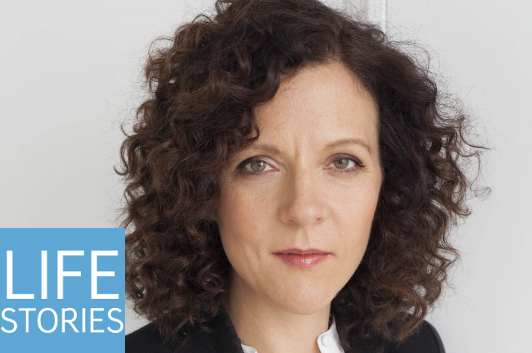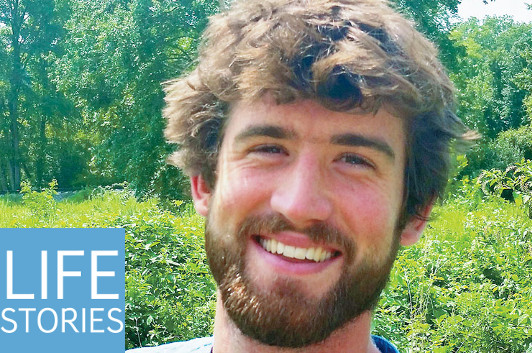Life Stories #98: Alexandria Marzano-Lesnevich
When Alexandria Marzano-Lesnevich was in law school, she did a summer internship at a Louisiana law firm. She was firmly against the death penalty, and then they asked if she would be prepared to work on the case of convicted child murderer Ricky Langley. Attempting to familiarize herself with the case, she was overwhelmed by memories of being molested by her grandfather—and though her career as a lawyer was pretty much over before it had even begun, her future as a writer was just beginning.
In The Fact of a Body, Marzano-Lesnevich writes about her efforts not just to confront what had happened to her and her sister, and how her family had suppressed it, but also to understand Rickey Langley—not to sympathize with him, as we discuss in this interview, but to understand what drove him to commit his crimes… and how his attempts to seek help before then had gone unanswered.
During our conversation, she also described one of the long-term effects of her grandfather’s molestation, how even as an adult her body would sometimes “freeze up” in a dissociative state—and how, since the writing of this memoir, that had stopped. It led us to discuss the clich&@33; about memoir writing, which is that it’s supposed to be cathartic, a notion she vigorously challenged:
“When I was working on this book, I can’t tell you how many people said to me, ‘Oh, you’re writing a memoir? That must be so therapeutic!’ And I would always want to bite back at them: ‘Not if you’re doing it right!’
Right? If you’re doing it right, you’re dredging up all this stuff, and you have to go into the complexity of it that maybe you didn’t force yourself to think about in the past. And that is not really therapeutic; in fact, it’s often deeply disturbing and unsettling—and there were times working on this book when I just could not be around other humans.”
We also talked a lot about the true crime genre, from the reasons writers choose to write about certain crimes to the creative effort that goes into developing a narrative rooted in the bare facts of a case.
Listen to Life Stories #98: Alexandria Marzano-Lesnevich (MP3 file); or download this file by right-clicking (Mac users, option-click). Or subscribe to Life Stories in iTunes, where you can catch up with earlier episodes and be alerted whenever a new one is released. (If you’re already an iTunes subscriber, please consider rating and reviewing the podcast!)
photo: Nina Subin
21 November 2017 | life stories |
Life Stories #97: Andrew Forsthoefel
As I was talking with Andrew Forsthoefel in the spring of 2017 about his 4,000-mile walk across the United States, which he writes about in Walking to Listen, I asked a kidding-but-not-kidding question: “So, what were you walking away from?” Because you don’t set off on foot to talk to random strangers unless there’s something you don’t want to deal with at home—but, as Andrew explains, the journey actually forced him to confront everything he’d been dealing with since his parents’ divorce a few years earlier.
And while he did talk to people that he met along the way, I realized that for the vast majority of his journey, he was out there alone with his own thoughts; as I told him, he could just as easily have gone up to the top of a mountain to meditate, but instead he chose to put one foot in front of the other. He agreed:
“It was a long, drawn out, movement-based confrontation with myself, which is what happens in the caves, in solitude, on top of the mountain. It was a similar experience. And the punctuations that you mentioned of the people I got to meet along the way… the people had a way of enhancing all the inner exploration I was having.
So I would do all this inner exploration on the road alone, and then I would meet someone at the end of the day. And I would be able to ask them authentically, sincerely, a question I had about my own exploration, and their experience of it. If I had spent the day dealing with sadness, I might meet someone at the end of the day, and get to talk with them, and the conversation might lead toward sadness, and I could hear about how they navigated that kind of thing.
And I came to realize that each person was a unique wellspring of information, of experiential information. And I could lean into that [wellspring], and drink from it, and we could share in that together.”
Listening to this conversation again a few months later, I was struck by Andrew’s thoughtful determination to really listen to others—to meet them with the full force of his empathy, even when (as we discuss) what they’re telling him is rooted in prejudice and hate. In a political climate where pundits make a lot of noise about “listening” to “forgotten” Americans, Andrew’s story offers a model for genuine conversation.
Listen to Life Stories #97: Andrew Forsthoefel (MP3 file); or download this file by right-clicking (Mac users, option-click). Or subscribe to Life Stories in iTunes, where you can catch up with earlier episodes and be alerted whenever a new one is released. (If you’re already an iTunes subscriber, please consider rating and reviewing the podcast!)
photo: Luke Forsthoefel
20 November 2017 | life stories |



 Our Endless and Proper Work is my new book with Belt Publishing about starting (and sticking to) a productive writing practice.
Our Endless and Proper Work is my new book with Belt Publishing about starting (and sticking to) a productive writing practice. 
